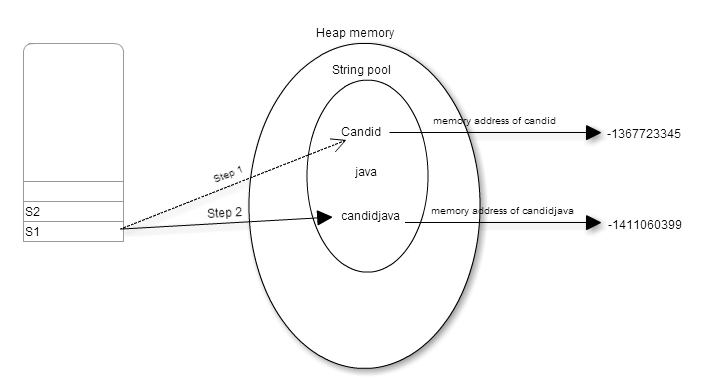Why Are Strings Immutable in Java? Understanding the Core Concepts
Why Are Strings Immutable in Java? Understanding the Core Concepts
Blog Article
What Is Immutable Strings and Just How It Functions
In the realm of programs, comprehending the idea of unalterable strings is paramount for producing protected and robust applications. Unalterable strings refer to strings that can not be altered after they are created, making sure data integrity and predictability within the code.
The Fundamentals of Unalterable Strings
Immutable strings, as an essential idea in programming, are personality sequences that can not be transformed when they are produced. This indicates that as soon as a string is designated a worth, that worth can not be changed. In languages like Python and Java, strings are unalterable items, bring about numerous implications in regards to memory monitoring and information integrity.
One of the crucial advantages of immutable strings is that they offer a sense of safety in data manipulation. Since the web content of an immutable string can not be customized, it makes sure that the initial information continues to be undamaged, reducing the threat of unexpected modifications throughout program implementation (Why are strings immutable in Java?). This residential or commercial property likewise streamlines debugging processes, as developers can rely on that when a string is specified, its worth will certainly not be accidentally changed
When a new string is produced based on an existing one, instead than modifying the original string, the new worth is saved separately. Overall, comprehending the essentials of immutable strings is critical for grasping programming ideas and maximizing code efficiency.
Benefits of Immutable Strings
Building upon the protection and effectiveness advantages of unalterable strings, their benefits encompass boosting code dependability and streamlining simultaneous programs tasks. By being unalterable, strings can not be changed after creation, which removes the danger of unintentional changes in the information they keep. This inherent immutability guarantees that once a string is produced, its worth continues to be constant throughout the program's execution, minimizing the possibilities of bugs brought on by unforeseen alterations.
Furthermore, unalterable strings contribute to code integrity by making it much easier to reason about the state of a program. Since strings can not be transformed, designers can rely on that a string will certainly always hold the exact same value, streamlining debugging and upkeep efforts. This predictability brings about much more reliable and stable codebases.

Implementation in Programming Languages
Within numerous programming languages, the consolidation of immutable strings is a fundamental element that impacts exactly how data is taken care of and controlled within code structures. The application of unalterable strings differs across different shows languages, with each language offering its own mechanisms Our site to sustain this principle.

On the other hand, languages like C and website link C++ do not have integrated support for unalterable strings. Developers in these languages must by hand execute immutability by enforcing guidelines within their code to stop direct alterations to string objects.
Finest Practices for Collaborating With Immutable Strings
When managing immutable strings in programming languages like Java and Python, sticking to ideal practices makes certain safe and reliable information control. One of the key finest techniques is to use StringBuilder or StringBuffer rather of directly controling strings, particularly when taking care of extensive concatenation procedures. These courses supply mutable alternatives for string control, helping to avoid unnecessary memory allowances and boosting efficiency.
Additionally, when working with sensitive information such as passwords or API secrets, it is vital to stay clear of keeping them as plain message in unalterable strings. Using protected storage space systems like char arrays or specialized libraries for handling delicate info assists minimize protection dangers associated with unalterable strings.
Real-world Applications and Instances
Discovering functional applications of unalterable strings in numerous sectors discloses their considerable effect on information integrity and system dependability. In the healthcare field, unalterable strings play a critical function in ensuring the protection and privacy of patient data. By protecting against unauthorized alterations to delicate information such as medical records and prescriptions, immutable strings help keep conformity with stringent personal privacy guidelines like HIPAA.
Banks additionally benefit from the unalterable nature of strings to improve the protection of client information and deal records. Unalterable strings assist avoid scams and unapproved alterations to economic info, giving a robust defense versus cyber risks and making sure the trust fund and confidence of customers.

Final Thought
Best methods for functioning with unalterable strings include preventing direct adjustments and using techniques that return new string objects. Real-world applications of immutable strings include Read Full Article data file encryption, caching, and string control tasks.
Immutable strings refer to strings that can not be changed after they are developed, making sure information honesty and predictability within the code. When a brand-new string is produced based on an existing one, instead than modifying the initial string, the brand-new worth is kept independently.In languages like Java and Python, strings are immutable by default, suggesting that once a string object is produced, its value can not be altered - Why are strings immutable in Java?. Finest practices for working with unalterable strings include avoiding straight adjustments and using techniques that return new string things. Real-world applications of unalterable strings include data file encryption, caching, and string manipulation jobs
Report this page